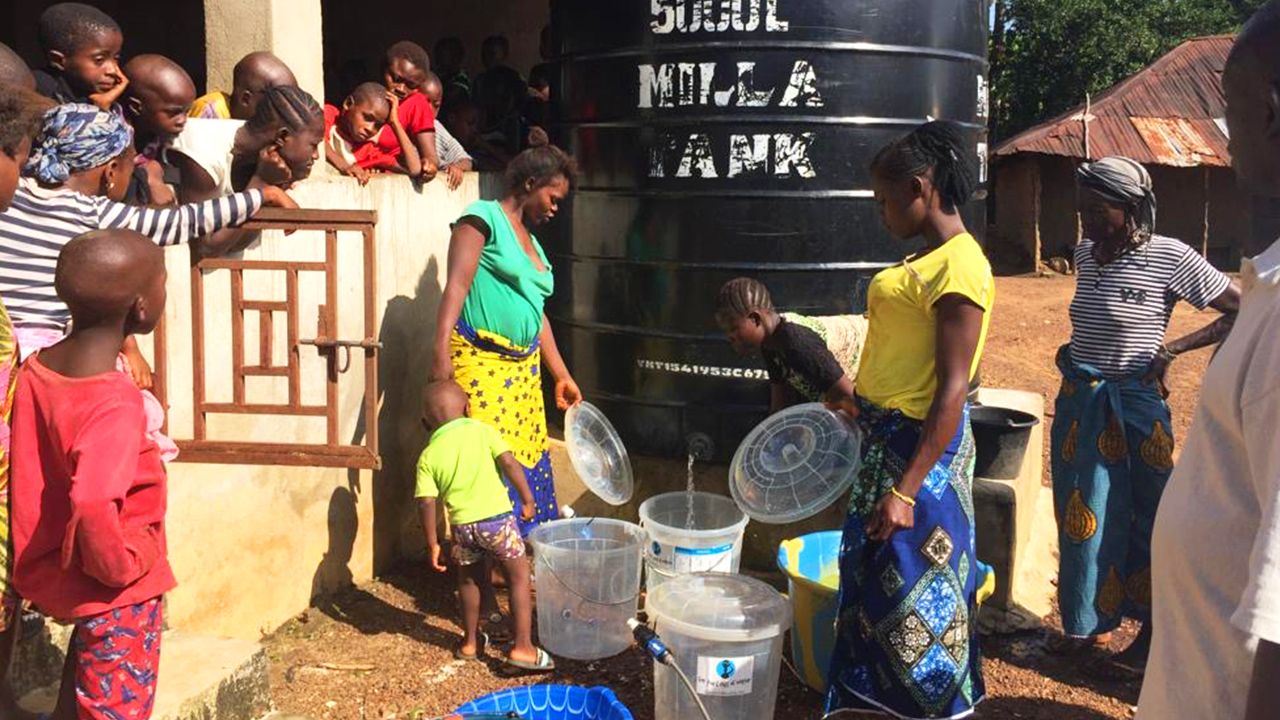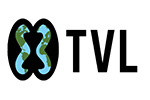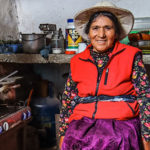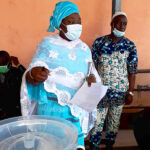
SIERRA LEONE
Since gaining independence from the British in 1961, Sierra Leone has experienced many economic, political, and social challenges. A rebel group, the Revolutionary United Front, plotted to overthrow the Government, resulting in a devastating civil war from 1991 to 2002. The extreme brutality of this conflict resulted in over 50,000 casualties and displaced over two million people. However, the most notorious atrocity of the 11-year conflict was the recruitment of 10-14,000 child soldiers between the ages of 8 and 14. Three years after the war ended, Sierra Leone was considered the poorest country in the world, with over 60% of the population living in poverty.
Only 2% of the population has access to clean, readily available drinking water. – CDC (2019)
Like so many places in Africa, the need for clean water is great, but for isolated communities that lack access to clean water, sanitation, or electricity, life is particularly harsh. In Mbondonbur, mothers and children are forced to drink contaminated water from old, rusty pipes, making them ill.
Working to address the issue, The Waterbearers has funded eight Rain Catchment Systems (RCS) in the Baoma Chiefdom in Bo district. Each one is connected to a school or community center where our partner, The Village Link, runs early childhood education and digital training centers. Clean water filters kits are provided for each of these villages and schools to ensure that everyone has easy access to safe drinking water. Thanks to a grant from Rotary International 220 households in Konia now have filters.
The demand for the use of water filters and rain catchment systems in the Boama Chiefdom is on an increase due to the IMPACT it’s creating in the various communities where they have been supplied. It has become customary that these communities no longer drink from the stream as they used to before The Waterbearers supplied water filters and the rain catchment systems. According to the Chief, before this time they used to experience a lot of sickness as a result of drinking water from the stream which caused them to get sick from typhoid, cholera and diarrhea, especially during the rainy season. But since they have started using the filters all of these sicknesses have drastically reduced raising total awareness on the use of the filters and its impacts. – James Bowen TVL (Sep 4, 2021)
FREETOWN MUDSLIDE 2017
Immediately following Sierra Leone’s worst natural disaster, a devastating mudslide in 2017 in Freetown that killed 1141 people and left thousands homeless, The Waterbearers started collaborating with The Village Link (TVL). While Freetown buried its dead and mourned their losses, other threats were lurking. Health officials were particularly concerned about the spread of malaria and water-borne diseases like cholera and typhoid.
Through this partnership with TVL, acting as first responders a WhatsApp group was formed with teams on the ground ready to help with relief efforts. Communicating in real-time across three continents, we were able to share updated information on where victims were being sheltered and what supplies they needed.
Meanwhile, Waterbearer Audrey Kissik had recently couriered filters to neighboring Liberia and arranged for 100 of the filters to be transported to Freetown by a police convoy bearing other relief supplies. This allowed us to set up clean filtered-water stations within 72 hours of the disaster for 3000 displaced survivors housed in relief camps; thereby halting the spread of cholera and typhoid.
REACH To date, 8 Rain Catchment Systems each with 5000-liter tanks, plus 550 filters provide clean water for more than 25,000 people.
LOCATIONS Freetown, and Golu, Konia, Gerihun, Mbondunbor in the Southern district of Bo.
DATES 2017 to 2021
PARTNER The Village Link



